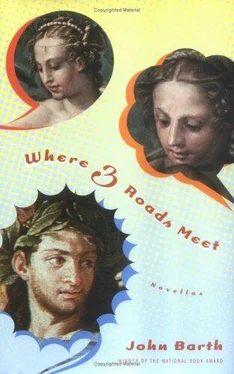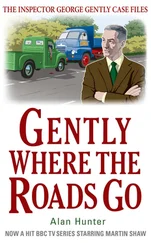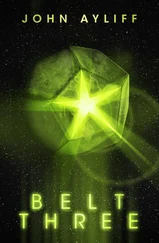The Important Thing, Will had been saying back then, was not that he'd happened in that mid-term essay to mention a number of associations that his so-savvy instructor hadn't thought of, like say the confluence of sperm and egg into embryo, or for that matter of father and mother into child — or, in the other direction, the forking of headwaters into river branches or tree trunks ditto, echoing the Primordial One's self-division, in sundry myths already mentioned in class, into Two and thence into Many; or (reversing Al's analogue of Hegelian dialectic, wherein Thesis versus Antithesis gives rise to Synthesis) the anti-Synthetic process of Analysis…
"What I had mentioned," put in Al here (back there back then, for Winnie's benefit), " — along with Siamese twins sharing a single lower body, like the mythical Melionides who fought Herakles, and the actual freaks illustrated in Aldrovandi's sixteenth-century Monstrorum Historia— was how at the Deutsches Eck in Koblenz, where the green Moselle joins the mud-brown Rhine, one is reminded not only of Hegelian Synthesis but of why Moselle wines come in green bottles and Rhine wines in brown. What F-Three added was that his Chesapeake tidal rivers, like say the handsome Wye (but un like its eponymous one-way English counterpart), switch from Synthesis to Analysis, or Fusion to Diffusion, every six and a half hours, changing the Place Where Three Roads Meet, or two become one, into the place where one becomes two. But that's not what mattered."
Yes it isn't. What mattered, as Will was saying to Al and Win (not for the first time) when the phone rang (ditto), was that he'd seen fit to cast these mid-term observations, whatever their merits, into the form of a gloss on Robert Frost's poem "The Road Not Taken" ("Two roads diverged in a yellow wood," et cetera), which the Lit & Phillers had read earlier that semester: more specifically, into the firstperson monologue of a nonconformist spermatozoon swimming alone against the current up a different fork of some dark stream from the one that his countless ejaculation-mates have chosen, and speculating on the overall layout of wherever in the world he is and on the mystery of what it's all about…
"Poor shmuck," had commiserated Winnie — who, like Al but not yet like Will, had acquired a handy array of Yiddish disparagements from Jewish friends and classmates.
"Poor fucking shmuck," had added Al: From the veterans on campus all hands were picking up the liberal use of what they called "the word that won the war."
Yes, well. What mattered, Narrator had been gratefully reminding them when the telephone rang, was that upon reading said mid-term essay its author's instructor was even more pleased by the narrative conceit and prose style than by what it had to say about that equiangular Y: enough so that he not only A-plused it but declared to the Three Freds' drummer at their next Trivium session, "What we have on our hands here, my friend, is a capital-G fucking Gift: the one you wished you'd had for music but did not, and the one I wish I had for lit-making but do not. We're talking capital-V Vocation, man! The capital-C fucking mythic-heroical Call!"
Of the authenticity whereof he became so generously convinced — through the rest of that freshman semester and the next, and the summer following and the sophomore fall semester after that, as the Three Freds worked, played, and, increasingly, lived together — that at his urging, self-skeptical Will gave VVLU's Rudiments of Narrative course a try. And although he learned more from his mentor-friend's editorial comments on those primitive efforts (and from keen-eared Winnie's, and from the classic authors they bade him read) than from his classmates and course instructor, Fred-the-Mentee resolved, in the semester following (i.e., spring '49, the "now" of this section of this Three Freds story), to change his academic major from General Arts and Sciences to the university's recently established program in Creative Writing: not necessarily what Al Baumann thought the best curriculum for aspiring writers, inasmuch as literature had managed quite well for millennia without such programs, but he shrugged his (non-)shoulders at the news and agreed that further intensive practice, with feedback more various than his and Winnie's alone, wouldn't likely do harm and might well be of some benefit— if one were sufficiently alive to Literature's vastness and variety to counter every facile generalization about what constitutes Good Writing with an inarguably brilliant contradictory example.
This would by him get said, of course, only after Will got his say said: his declaration of major-changing intent, with which he meant to follow his grateful reminiscence-in-progress of that first-semester term paper on Analogues to the Y which had led him to what he was now entirely persuaded was his true Calling, however ably or otherwise he responded to that call. And it was in the midst of just that reminiscence that Briarwood 304's telephone rang, first with a wrong number and then — as Will was saying "As I was saying, guys" — with a mellifluous baritone response to Winifred Stark's "Hello?"
"Is there a Wilfred Chase there, please? Louis Levy calling."
Win arched her never-plucked eyebrows, puckered her ever-unpainted lips, beamed conspiratorially at Freds One and Three, held out the receiver to that latter, silently mouthed the name Lou Levy, and (not for the first or last time in this trio's history) said to same, "It's yours."
In his Lit & Phil class discussions of Truth, Goodness, and Beauty, Alfred Baumann was at pains to distinguish Truth from Fact: "We speak of the truths of great novels, or the truths of great myths, even though both involve made-up stories," et cetera. And he was fond of pointing out to his students how different were the meanings of Veritas vos liberabit to Jesus, for example (as quoted by his disciple John in the eponymous book, 8:32); to the research university whose motto, eighteen centuries later, those words became; and to the newly founded U.S. Central Intelligence Agency, which had also seen fit to appropriate that "bit o' Scripture" as its motto. He enjoyed pointing out (the class was reading Sophocles) that while "the truth" might indeed be liberating — whether from soul-damning Error in the first instance, intellectual benightedness in the second, or perilous ignorance of what the nation's designated enemies were up to in the third — it could also be devastating, even fatal, as witness poor Oedipus and various other tragic heroes. " Gnothi seauton, the Delphic oracle advises," he would remind his more or less attentive freshmen. " Know thyself. Because, adds Socrates, the unexamined life is not worth living. So, then: Was Oedipus in better shape, was he more quote-unquote free, for learning that the old guy he'd knocked off at the Place Where Three Roads Meet was in fact his dad, who'd tried and failed to have him knocked off at birth? And that the widow-queen he'd then married and sired kids upon was his birth-mom? Remembering the King James Bible sense of 'to know' as 'to have carnal knowledge of,' one could fairly say that in Oedipus's case, to know himself was to screw himself altogether! So tell me: Given that for him the examined life was literally unlivable, would our Oed have been better off not knowing? One bluebook's or fifty minutes' worth of lucid commentary, s.v.p., whichever comes first."
Although never a varsity athlete, senior class officer, or other sort of high school bigshot, Wilfred Chase (wrestling determinedly there in the third row with Al's bluebook question) had been a not-unpopular teenager who'd quite enjoyed his small-town adolescence despite wartime deprivations and the county's junior-year senior year. He'd been a columnist for the school newspaper and had co-managed the boys' varsity basketball team, had co-organized that aforementioned rudimentary jazz combo, and had dated two or three girls over that foreshortened period. No extended romances, but when his buddies compared notes on their postprom exploits — typically a matter of who among them had managed, in the lingo of the time, to get to First or even to Second Base with his date — Will was not obliged either to lie or to remain silent at risk of being thought prudish or queer. Few of their age and kind back then could claim honestly to have reached Third Base (reciprocal manual masturbation, fellatio, or cunnilingus, for all which they knew only the vulgar terminology); and the few who not only had attained that much-coveted station but had actually "scored" were not inclined to boast of having done so, their partners typically being longtime sweethearts whom they meant to marry "when the time came," and of whose reputations they were therefore, for the most part, honorably protective. He had, had our Will, by his seventeenth birthday French-kissed Vicki Parker as the pair rocked on her front-porch glider; had playfully patted Helen Davis's behind several times while jitterbugging in her family's rec room and teasingly squeezed same while slow-dancing; had fondled Doris Travers's starboard breast through sweater and bra in Schine's Avalon Theatre during a Saturday matinee of Lady on a Train, starring Deanna Durbin and Ralph Bellamy; and had done both of the above plus actually getting hand under bra (Vicki again, junior/senior prom night, in back seat of Donnie McDougal's parents' brand-new DeSoto) and even up under skirt and panties, briefly, where he'd touched the pert blond's presumably-also-blond pubic fur (what did he know?), but had been by her firmly escorted off those premises before reaching its sacred precinct, moist heart of the mystery. Into penile masturbation he had been initiated in Boy Scout Camp at age almost-thirteen by pretending that he knew all about it already while an older Eagle Scout in his cabin explained the procedure to a wide-eyed fellow Tenderfoot; thereafter he availed himself of that solitary pleasure with a frequency that he assumed — correctly, as it happens — to be within normal parameters.
Читать дальше












